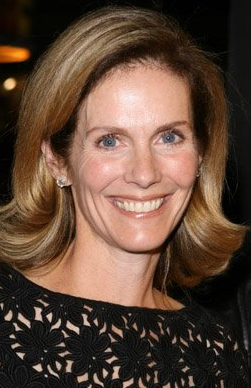|
Julie Hagerty
Scroll down for movie list.
Biography
Julie Hagerty\'s unique personality and talent likely would have been better served had she worked under the Hollywood studio system. As it is, her place in cinema history is secure with her role of stewardess Elaine Dickinson in the comedy classic Airplane! (1980). Hagerty should have evolved into a latter-day Jean Arthur, or become a highly valued supporting player a la Zasu Pitts. That she continues to toil in the industry despite lacking a hit or leading role almost three decades from making her motion picture debut is testimony to her singularness as a performer.
Julie was born in Cincinatti, Ohio on June 15, 1955. Her father Jerry was a musician, and her mother Harriet Yuellig was a singer and model. Julie followed her mother in her latter career, signing with Ford Models agency at the age of 15. The teenager spent her summer vacations modeling in New York City, where she moved in 1972 after graduating from high school. Her older brother was part of a New York theatrical troupe, \"The Production Company\", and she studied acting with William Hickey. In 1979, she made her off-Broadway theatrical debut in The Production Company\'s show Mutual Benefit Life; subsequently, she appeared on Broadway in John Guare\'s comedy \"The House of Blue Leaves\" in 1986-87, for which she won a 1986 Theatre World Award.
Airplane! (1980), ranked #10 on the American Film Institute\'s list of the Top 100 Comedies, rates as her official film debut, though she had a part in erstwhile lover Bob Fosse\'s All That Jazz (1979) that, unfortunately, wound up on the proverbial killing floor of the cutting room (which was actually featured in Fosse\'s impressionistic argosy influenced by Federico Fellini\'s 8½ (1963). After her smashing debut, Hagerty appeared in the inevitable sequel, and starred in major theatrical films, including Woody Allen\'s A Midsummer Night\'s Sex Comedy (1982), \'Albert Brooks (I)\'\' Lost in America (1985), and Robert Altman\'s Beyond Therapy (1987). After the failure of the Altman film, her career cooled off; Hagerty began appearing mostly in supporting roles in feature films and in made-for-TV movies. |  |










